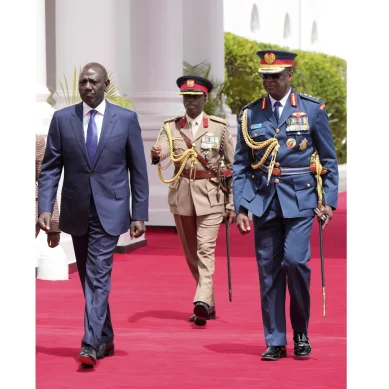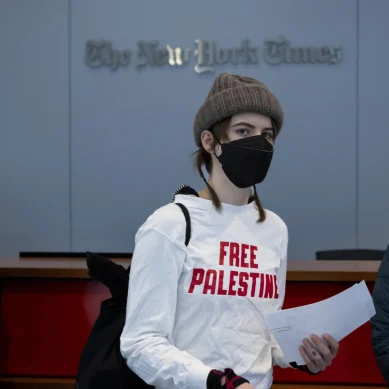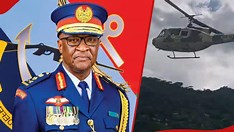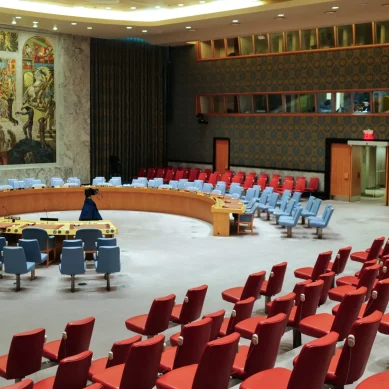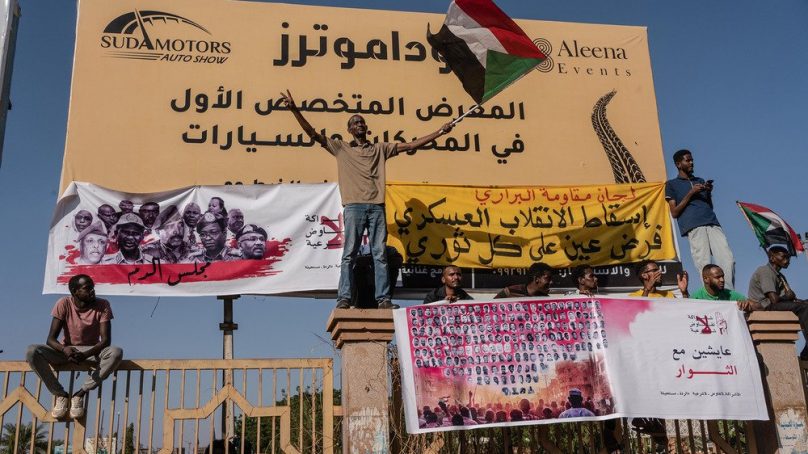
Mass demonstrations are expected in Sudan this weekend, on the third anniversary of the country’s revolution, in a new test of strength between pro-democracy activists and the military, whose coup in October toppled the country’s fragile transitional government.
Neighbourhood-based resistance committees are, once again, playing a key role in mobilising opposition – organising marches, building street barricades, and debating a political strategy for the way forward.
The December 19 protests will underline popular opposition to the new military-controlled administration fronted by Prime Minister Abdalla Hamdok – released from house arrest after agreeing a deal last month with coup leader General Abdel Fattah al-Burhan.
Since the October 25 putsch, there have been rolling pro-democracy protests across the country under the banner “No negotiations, no compromise, no power-sharing” with the military. At least 44 people have been shot dead by the security forces.
Hamdok, a mild-mannered technocrat, said he had agreed to the deal to “avoid bloodshed”, and to ensure the promise of a restored transition to civilian rule. Yet his room for manoeuvre is limited. He is now regarded as almost irrelevant by the street-based opposition and has little influence over the generals, some of whom are believed to harbour political ambitions.
An aid freeze imposed by major donors immediately after the coup has yet to be lifted – a significant blow for an already precarious economy. Volunteer groups were central to the uprising that toppled dictator Omar al-Bashir in April 2019. Their sustained pressure forced the military, which had taken power in the interim, to agree to a power-sharing transitional administration four months later.
The central demand of the democracy movement now is for the military to get out of politics and return to the barracks. “The resistance committees have made it clear that their main concern is to call for full civilian rule,” explained Sudanese political analyst Kholood Khair. “Until that is established, they will continue to protest.”
But defying the generals is dangerous. At a resistance committee meeting The New Humanitarian attended one evening last month, the two dozen men and women that had gathered were wary – most had left their phone at home as an anti-surveillance precaution.
“There have been many arrests,” explained one young man, a veteran street organiser. “They target those who coordinate political activities. They are trying to put pressure on us, to create a climate of fear.”
But he remained confident – despite the security crackdown; the guarded international support for the Burhan-Hamdok deal; and the jolt of life the coup has given old-guard pro-military Islamist parties.
“They want to break our determination, but we know a revolution is a long process,” said the activist, who cut his political teeth in cost-of-living protests in 2013 in which an estimated 200 people were gunned down by the security forces.
The resistance committees portray themselves as guardians of the revolution – a flexible network of young activists transcending political party affiliation and class, representing neighbourhoods as diverse as the hard-scrabble district of Haj Yousif and the wealthy Riyadh suburb. And their influence extends to cities beyond Khartoum.
“During the revolution, everyone wanted to do something for the country,” said Saria Abdelafiz, 27, her hair braided, a single small nose ring, and kohl-lined eyes. “When you start acting, it feels like an achievement.”
Although the resistance committees were part of the Forces of Freedom and Change (FFC) opposition coalition that overthrew al-Bashir’s regime, they were largely left out of the negotiations for the transitional agreement with the military in August 2019. They did not join Hamdok’s administration – a mix of technocrats and members of traditional political parties.
The resistance committees preferred to represent the so-called “voice of the streets,” pushing Hamdok to adopt a more pro-poor economic agenda, and to speed up on the delivery of promised democratic reforms during the transition to planned elections in 2022.
“We are not political parties. We don’t want to be appointed as ministers,” said Elsiddig Kamal, a resistance committee member in one of the best organised neighbourhoods: Shambat in Khartoum North. “We want the needs of the people to be fulfilled.”
- The New Humanitarian report
